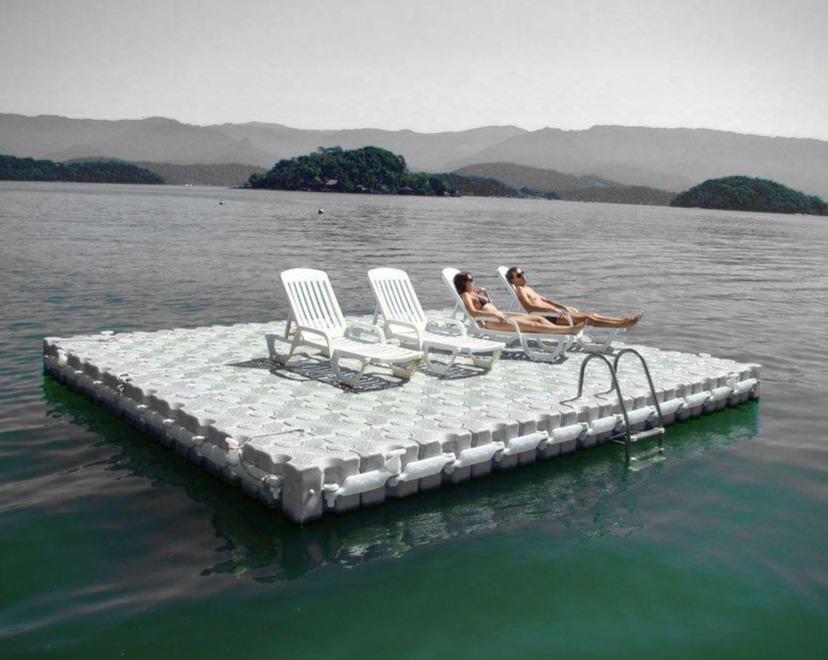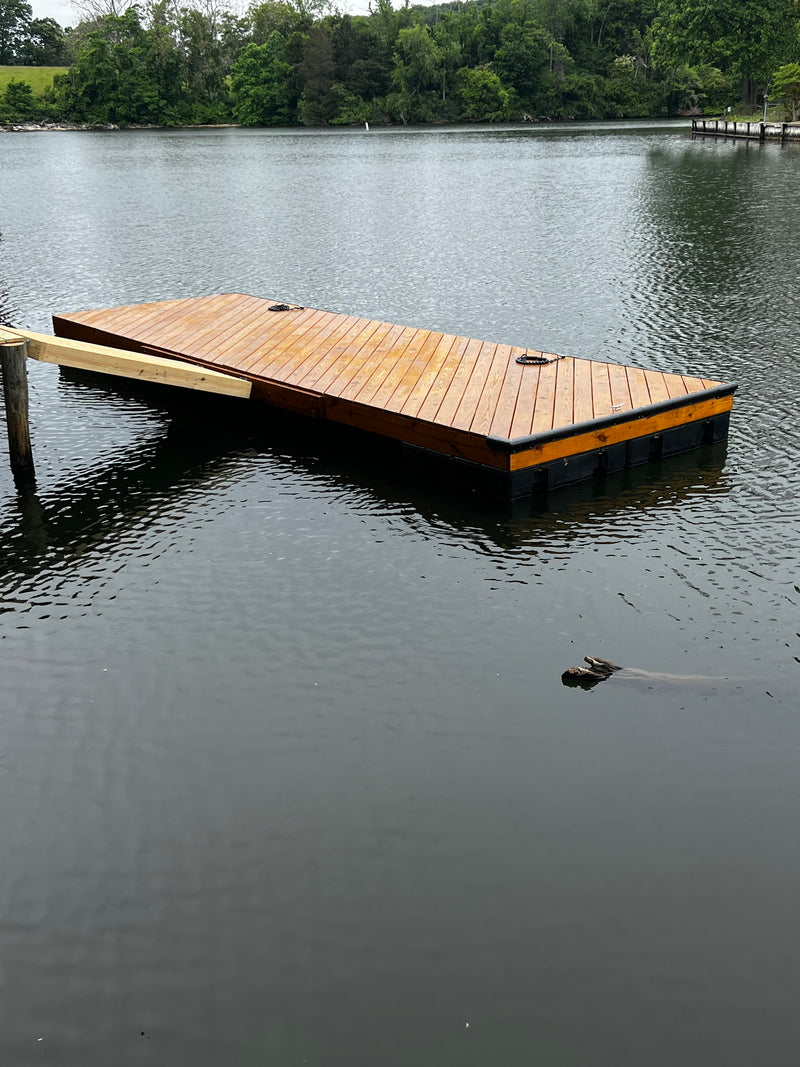The Relevance of High Quality in Floating Dock Builder Selection for Resilient Docks
The Relevance of High Quality in Floating Dock Builder Selection for Resilient Docks
Blog Article
The Ultimate Guide to Picking the very best Floating Docks
Choosing the ideal floating dock calls for a thorough understanding of numerous components that affect both performance and longevity. Elements such as dock types, products, and crucial features substantially impact your decision-making process.
Recognizing Floating Dock Types
When picking a floating dock, it is important to comprehend the different types available, as each offers distinctive objectives and applications. Floating docks mainly come under 3 classifications: modular, stationary, and pontoon docks.
Modular docks are made up of individual sections that can be quickly assembled or reconfigured, making them excellent for changing water levels and varied uses, such as entertainment activities or industrial operations. Their flexibility enables customization based upon certain demands.

Pontoon docks are defined by their buoyant structure, usually made up of numerous pontoons that give security and support. They are especially fit for bigger vessels and are commonly used in marinas or for waterfront homes. Recognizing these types aids in picking the most ideal floating dock to meet certain requirements, ensuring ideal functionality and safety.
Trick Products for Toughness
Picking the best materials for floating docks considerably effects their sturdiness and long life. The most usual materials consist of wood, plastic, metal, and composite products, each offering unique advantages and limitations.
Wood, commonly preferred for its aesthetic appeal, needs normal upkeep to stand up to wetness and decay. Pressure-treated lumber can enhance resistance to rot, yet it may still be at risk to pests and weathering.

Plastic docks, made of high-density polyethylene (HDPE), are immune to rust, UV radiation, and impact, making them a popular choice for coastal atmospheres. Their lightweight nature additionally facilitates simple installment and relocation.
Steel docks, commonly constructed from aluminum or galvanized steel, offer exceptional strength and sturdiness. They are immune to corrosion, especially when dealt with, but might require additional insulation to prevent warm accumulation in warm environments.
Composite products, combining timber fibers and plastics, supply the benefits of both timber and plastic, resisting moisture and fading while needing minimal maintenance. - floating dock company
Eventually, the choice of products should align with environmental problems, planned use, and upkeep choices to ensure the floating dock remains useful and visually pleasing with time.
Important Functions to Think About
While the option of materials is essential, taking into consideration necessary attributes for floating docks is just as crucial to guarantee optimal performance and customer fulfillment. One essential feature to analyze is the dock's buoyancy ability, which establishes how much weight it can support without immersing. floating docks. This is essential for suiting watercrafts, personal watercraft, and even entertainment tasks
In addition, portability is a considerable consideration. Depending on your demands, you may want a dock that is very easy to carry and disassemble, especially if you plan to relocate it seasonally. Security is one more necessary function; a properly designed floating dock should decrease movement brought on by wind and water currents, providing a safe and secure platform for users.
Security functions, such as non-slip surface areas and rounded edges, are also critical to avoid mishaps, especially in damp conditions. Consider the schedule of accessories, such as cleats, ladders, and bumpers, which can improve the you can try here functionality of your dock.
Setup and Upkeep Tips
Establishing and maintaining a floating dock calls for mindful planning and interest to information to guarantee its durability and ideal performance. Begin by choosing an ideal place that decreases direct exposure to strong currents and waves, which can create wear and tear. Ensure that the water deepness is enough for the dock's elevation and that it is secured securely to stop activity.
During installation, comply with the supplier's standards very closely, as improper setting up can compromise security. Use top quality materials immune to corrosion, such as light weight aluminum or dealt with timber, to improve durability. Routinely examine all parts, including floats, ports, and anchoring systems, for indicators of damage or wear.
If your dock makes use of flotation tools, guarantee they continue to be totally free and undamaged from slits. By adhering to these installment and maintenance suggestions, you can take pleasure in a dependable and practical floating dock for years to come.
Budgeting for Your Dock
Budgeting for your dock is a crucial action that can significantly influence your general contentment and investment in a waterside home. Establishing a clear budget helps you navigate the numerous alternatives offered and guarantees you make informed choices that line up with your financial abilities.
Begin by determining the size and layout of the try here dock you need, as these elements will considerably affect the cost. Floating docks can vary dramatically in rate, depending upon materials, buoyancy, and attributes like ramps and accessories. Research different producers and providers to contrast rates and recognize the market worth.
In enhancement to initial costs, consider continuous costs such as maintenance, insurance, and prospective repair services. Allocate funds for these reoccuring prices to stay clear of shocks down the line. It's additionally prudent to budget plan for any kind of essential permits or inspections, which might be needed by regional regulations.
Lastly, maintain in mind the prospective roi. A well-planned dock can improve your residential or commercial property's worth and charm, supplying a positive monetary influence in the long-term. By budgeting successfully, you can guarantee that your dock fulfills your requirements without endangering your economic stability.
Verdict
In conclusion, choosing the perfect floating dock requires a detailed analysis of different aspects, including dock types, products, vital features, and installment procedures. Mindful factor to consider of monetary restraints will certainly additionally guarantee an audio investment.

While the selection of products is essential, thinking about vital attributes for floating docks is just as essential to ensure optimal performance and customer contentment.Establishing up and preserving a drifting dock requires mindful planning and focus to information to ensure its durability and ideal efficiency. Floating docks can vary significantly in cost, depending on products, buoyancy, and attributes like ramps and accessories.In conclusion, choosing the perfect floating dock necessitates a thorough analysis of various variables, including dock types, materials, important attributes, and installment processes.
Report this page